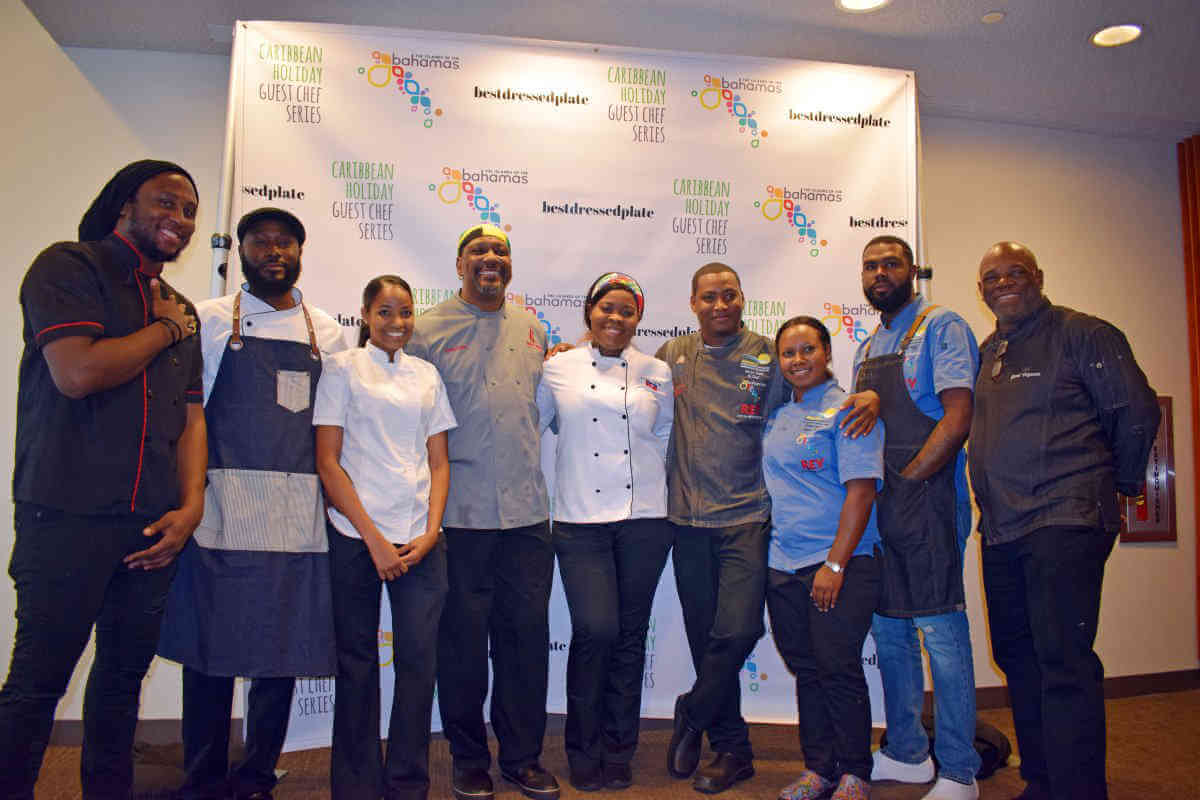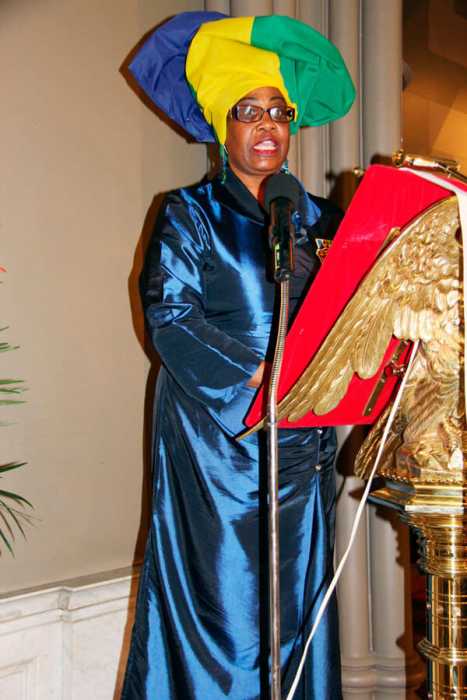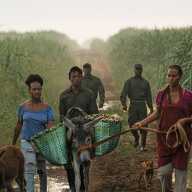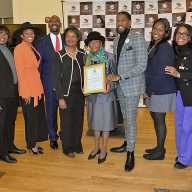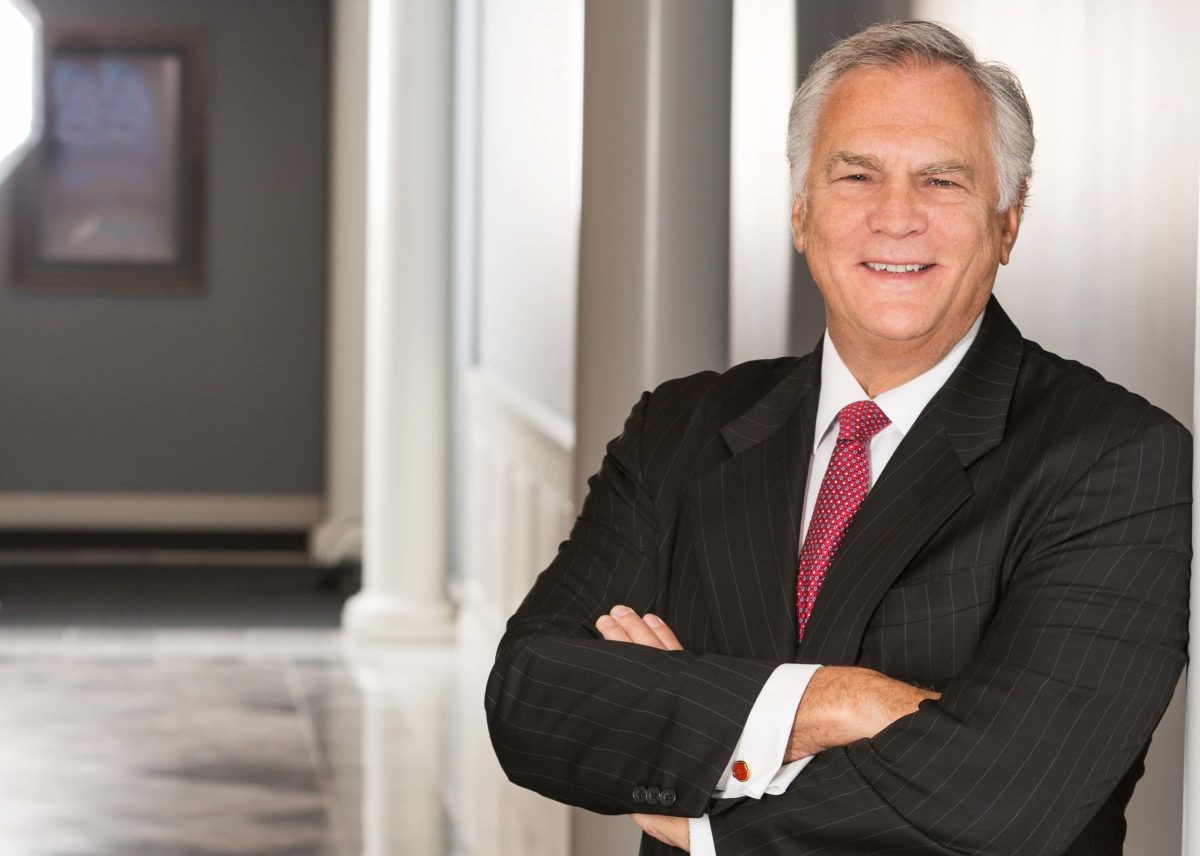They served the world the best of the Caribbean!
Caribbean chefs took over the Delegates Dining room at the United Nations last week for the first ever “Caribbean Holiday Guest Chef Series” Dec. 12–14. The three-day event, which featured chefs from Jamaica, Bahamas, and Haiti, kicked off serving several dishes and desserts from the former island. Organized by food blog Best Dressed Plate in partnership with the intergovernmental organization, the idea behind the event was to give chefs a platform to showcase their culinary skills to people from all over.
“The whole purpose of Best Dressed Plate is to celebrate Caribbean food outside of it normally being seen as street food — from the plating aspect, as well as highlighting chefs from the Caribbean who are doing amazing things in the world,” said Nneka Nurse. “You don’t necessarily see Caribbean chefs getting the exposure that they should have, so I created this to elevate the brand and the Caribbean as a whole.”
Nine chefs participated in the series — four from Jamaica, three from the Bahamas, and two from Haiti. Each day was dedicated to a particular country’s cuisine, with Jamaica starting off the event.
On the inaugural menu was a masala spiced goat, salt fish, scotch bonnet polenta, a classic jerk chicken, pumpkin soup, and a few desserts that included a chocolate-flavored bread pudding — all with a chef’s spin. Preparing the dishes on the menu were chefs Aniece Chang, Gariel Ferguson, Troy Levy, and Hugh “Irie” Sinclair.
All the chefs were excited to participate in the series, particularly those who wanted to challenge common stereotypes about their native cuisine. Chef Troy Levy, who has been cooking professionally for five years, said he was primarily interested in showing Ital dishes — a popular plant-based diet commonly practiced by Rastafarians.
“A lot of people think ital doesn’t have flavor, it’s bland, and it’s just bush, but that’s misconstrued, and as an ital chef — you can eat whatever you want, as long as it is not meat and its organic,” he said.
He said the series presented him and his fellow compatriots a chance to offer a wider range of Jamaican cuisine not often found in restaurants.
“I’m really grateful for this opportunity because it’s going to definitely show different people and different cultures, our culture, and show them that we’re diverse,” he said. “We have meat but still do vegan and vegetarian dishes as well, and show that as Jamaican chefs we’re not only able to cook just jerk chicken. We have different ways of cooking our food.”
Nurse who is of Jamaican, Trinidadian, and Barbadian heritage said she enjoys Caribbean cuisine and the unique similarities and differences they share. One of her priorities was to ensure that certain dishes, and cuisines from the region that are still emerging were featured. She said Haiti’s food scene for instance has a growing platform that she wanted to further boost.
“In Haiti, the food is very similar to African cuisine but still has the Caribbean undertones, but the cuisine is still yet to be globally discovered,” she said.
But with Haitian culinarians, chefs Ash and Devron Desauguste — she said they were two of many chefs from the country who were working to change that.
“Haitian chefs are doing an amazing job of really putting it out there,” she said.
Many of the chefs in the event were chosen by Nurse based on her prior knowledge of their background in the culinary field, along with her search to include a diverse array of cooks.
“Some of the chefs are people that I’ve featured and some are chefs that I did my own research on,” she said. “I looked for chefs who are up-and-coming, I was very focused on trying to get female chefs as well because a lot of Caribbean chefs we see are usually men, and I made sure I brought on some young and emerging chefs and those who’ve been in the game for a long time.”
Nurse said the hosting the event at the United Nations gave Caribbean cuisine a platform to a global community, and was the ideal place to do so.
“It’s important to have it here at the United Nations because of what it stands for,” she said. “Everything about the UN is unification and everyone being together as one, and food is a universal language as is music, and the best place to expose it is in a place like this where all nations can come together and celebrate food.”


